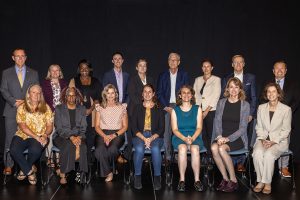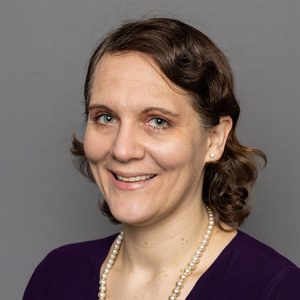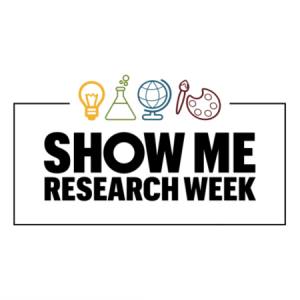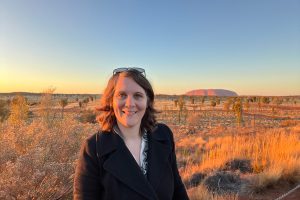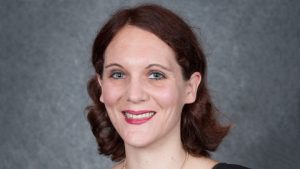Research at a glance
Research Topics
Research Summary
Dr. Morett investigates how hand gestures and other body movements help people learn and process languages.
Education
- Hilibrand Postdoctoral Fellow, Yale Child Study Center, New Haven, CT, 2016-2017.
- T32 Postdoctoral Fellow, University of Pittsburgh, Pittsburgh, PA, 2013-2016.
- Ph.D., University of California, Santa Cruz, Santa Cruz, CA, 2008-2012.
- B.A., Washington College, Chestertown, MD, 2004-2008.
Courses taught
- SLHS 8300: Neurological Bases of Speech and Language
Research interests
- Language acquisition
- Gesture production and processing
- Neuroscience
- Relationship between gesture and speech
Selected awards and honors
- Nellie Rose McCrory Excellence in Research Award, University of Alabama, 2022
- Outstanding Undergraduate Mentorship Award, University of Alabama, 2021
- Fellow, Psychonomic Society, 2018
- Rising Star, Association for Psychological Science, 2017
Research statement
Dr. Morett’s research investigates the cognitive and neural mechanisms underlying the influence of the body on language acquisition and processing, known as embodiment. She examines the development of embodiment across the lifespan via hand gesture and sign language, focusing on second language (L2) acquisition and autism spectrum disorders (ASD). The long-term goal of her research is to address fundamental questions about how embodiment contributes to successful learning and communication. The translational goal of her research is to leverage the mechanisms underlying embodiment to improve diagnosis and treatment of verbal and nonverbal communication impairments in clinical populations.
Dr. Morett is the recipient of a CAREER award from the National Science Foundation for her research investigating how the brain integrates observed gestures conveying sound and meaning with newly learned L2 words. This work is part of a line of research investigating how observing gestures conveying pitch contours facilitates L2 acquisition of lexical tone by atonal first language (L1) speakers. This line of research is contributing to the development of evidence-based practices leveraging gesture to facilitate instructed L2 acquisition.
Another line of Dr. Morett’s research focuses on gesture-speech integration in ASD. Dr. Morett’s previous research has demonstrated that gesture production and speech production are less closely temporally associated in ASD than in neurotypical peers. At present, Dr. Morett is investigating the neural substrates of gesture-speech integration in ASD and their development to better understand how they differ from neurotypicals and why this may be the case.
In addition to gesture, Dr. Morett investigates the acquisition of sign language as an L2 by hearing adults. Dr. Morett’s research has shown that enacting L2 signs at learning enhances subsequent recall in hearing individuals and that sensorimotor input from signing is a key contributing factor. Dr. Morett is interested in extending this line of research to examine acquisition of unfamiliar signs by L1 signers to examine similarities and differences in the cognitive and neural mechanisms underlying L1 and L2 sign acquisition.
Dr. Morett is committed to providing mentoring and outreach to the next generation of scientists and to increasing representation of groups historically marginalized in science, technology, and engineering (STEM). Dr. Morett’s research is highly interdisciplinary and collaborative, reflecting her belief that the strongest science incorporates diverse perspectives. Dr. Morett encourages interested trainees and colleagues to reach out to discuss research ideas and opportunities.
Neuroscience of Education Research on Development (NERD) Lab